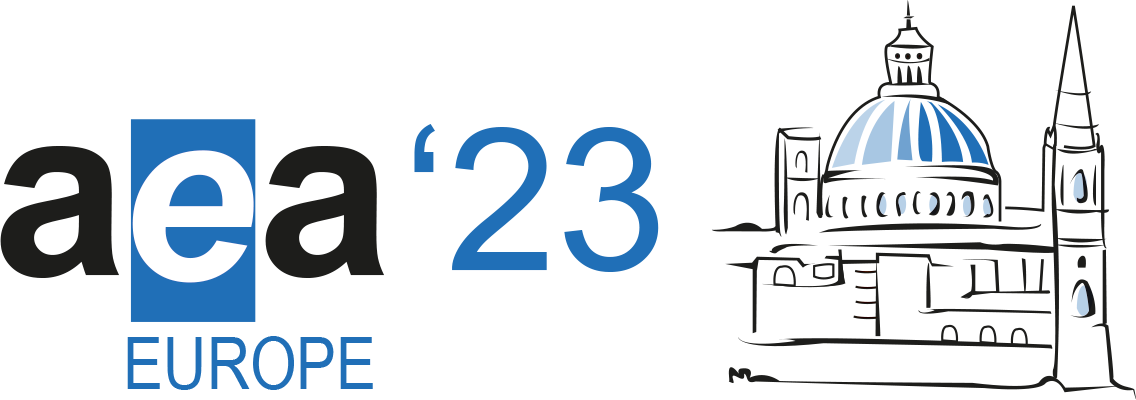POSTER SESSION
- There is a poster award of €500, sponsored by Cito.
- Each attendee can nominate up to three posters for the award.
- Voting will be done through the conference app, which will allow each attendee one voting opportunity. Voting will start at the end of the session at 12:45
- The Professional Development Committee will count the votes after voting is closed.
- The poster with the highest number of nominations will be announced as the poster award winner during the closing session of the conference.
List of Posters
1. Reduced grading in vocational education
Dan-Anders Normann
2. Accessibility considerations for Digital Assessments – Development of a Framework
Sanjay Mistry
3. ‘Disruption’ and/or ’Innovation? The case for e-assessment
Graeme Clark, Stuart Shaw
4. Exploring the social and cultural factors that impact on student attainment
Phoebe Surridge
5. TALK: Developing a baseline oracy framework for Teaching, Assessment, Learning, and Knowledge (TALK) in school
Lynell Chvala, Anne-Grete Kaldahl
6. The overall impact of cross-language Differential Item Functioning at the test level: The case of PIRLS 2016 in South Africa
Heather Leigh Kayton
7. IB Open Book Exams pilot study – A picture of our schools at the start
Rebecca Chivers, Rebecca Hamer
8. Is that true? No, that’s nonsense! Understanding AI hallucination and confabulations
Rebecca Hamer
9. Evaluating and assessing distance education learners: Developing a comprehensive learner model
Slaviša Radović, Niels Siedel
10. Read Messick! Developing ethical AI will require assessment literacy.
Cesare Aloisi
11. A meta-analysis of math anxiety interventions
Ellen Sammallahti, Jonatan Finell, Bert Jonsson, Johan Korhonen
12. Not like that! Attempting to use GPT to generate examples in statistics
Imogen Casebourne
13. Construct definition in international educational assessment design
Louise Badham
14. Assessing the Swedish Shortened Mathematics Anxiety Rating Scale and its Relationship to Math Performance and Attitudes in Young Students
Jonatan Finell
15. Feedback Culture at School: What Remains Neglected?
Zukhra Utesheva, Saltanat Unbayeva
16. Does a unitised approach build resilience into an assessment system?
Richard Harry
17. ‘But what do we do with the results?’ A systematic approach to using assessment data holistically to improve teaching and learning
Suzanne Crocker, Irenka Suto
18. Cooperation in external assessment – projects in Cape Verde and Angola
Ana Monteiro, Manuel Gomes, Margarida Borges
19. Development of a framework for assessing mathematical literacy in primary and secondary school: A pilot study
Marta Mikite, Ilze France, Ģirts Burgmanis
20. Divergent considerations during the journey to internationalise mathematics questions in an adaptive baseline assessment.
Emma Barthel, Irenka Suto
21. Student motivation in history: associations between formative assessment, historical consciousness and ‘doing history’
Harald Eriksen, Hege Roaldset, Karsten Korbøl
22. Comparative Judgment vs. Criteria-based Assessment in Legal Education
Kjetil Egelandsdal, Eva Hartell
23. Comparative Judgment for Summative Assessment in Legal Education
Kjetil Egelandsdal, Eva Hartell
24. Transformations in Large-scale Educational Assessments: The Case of India Compared Internationally
Peter van Rijn, Indrani Bhaduri, Jonas Bertling, Han-Hui Por
25. Speak properly! Understanding the role of auto-generated captioning technologies in the marginalisation of disabled speech
Claire Tupling
26. An investigation of approaches to student assessment in international high schools in China in the context of practices internationally.
Xiaohui Yang
27. Towards justified use of automated speaking assessment algorithms via an argument-based validation: A case study of prosodic features assessment
Yuanyue Hao
28. Self-Assessment in performance. Teachers’ thoughts and concerns.
Dimitra Tsalta, Thomais Rousoulioti, Antonios Ventouris, Olympia Blatsioti
